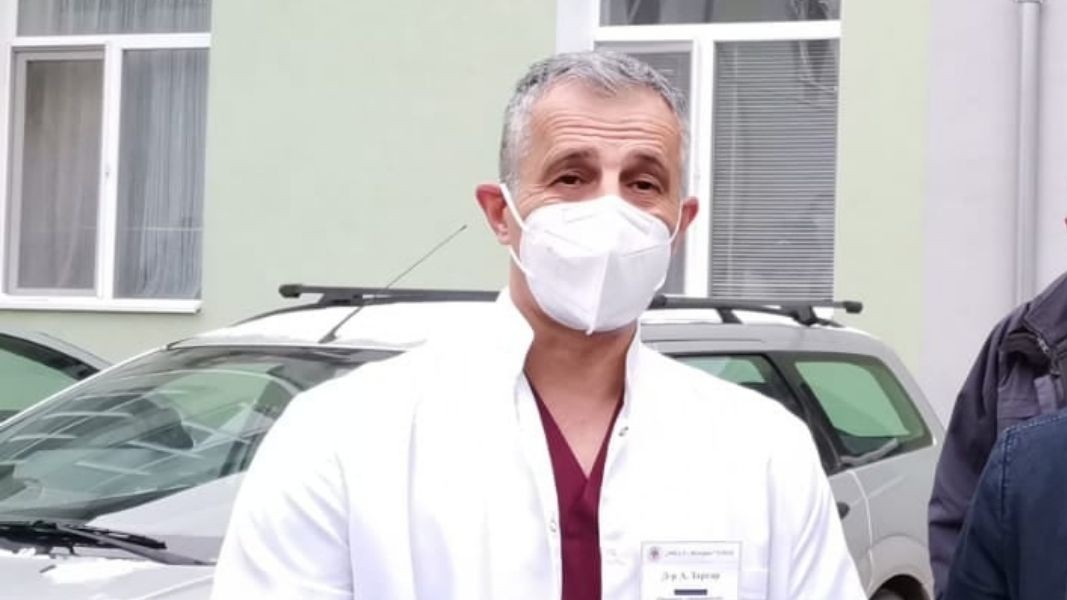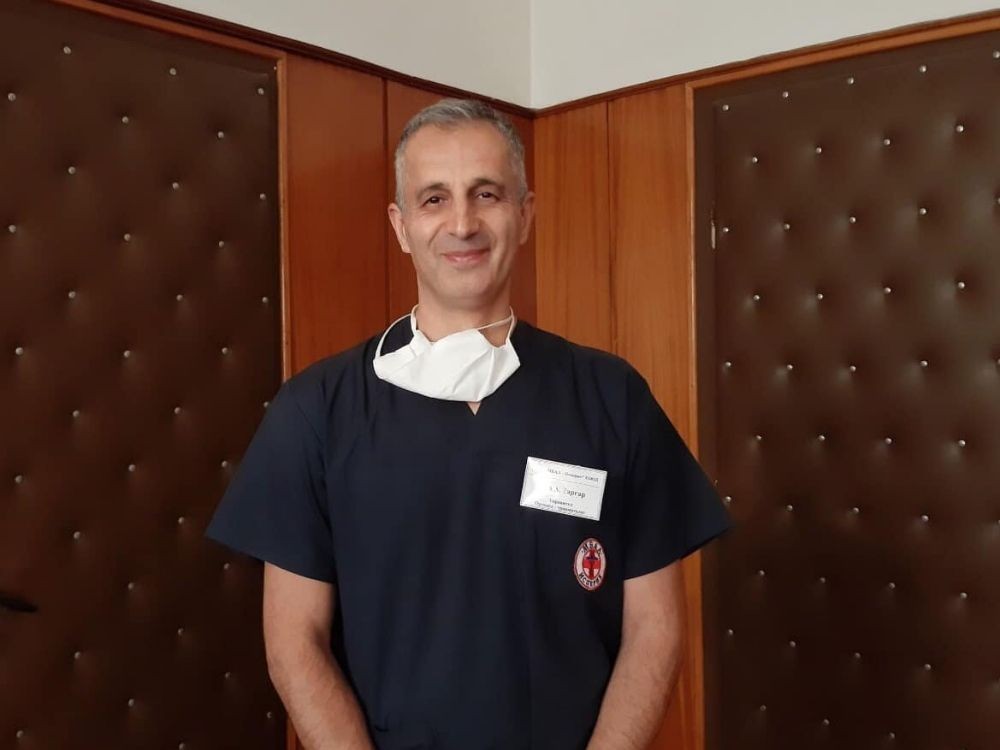Dr. Abdoullah Zargar-Shabestari‘s first Bulgarian word was related to goodness. And good he did, year after year, healing patients in a poverty-stricken region of Bulgaria close to the Romanian border. So when he needed a helping hand, he received thousands of them. An avalanche of goodwill drove the administrative machine to help the doctor who saved the city hospital from bankruptcy, so that he could still keep up the good work.
At the outset of 2021, the Iranian-born doctor was given Bulgarian citizenship, after he wasbacked by all citizens of the small town of Isperih and supported by the general public. The medic who had come to Bulgaria 18 years ago, had been forced to resign as director of Isperih General Hospital because of the lack of citizenship.
A year later, Dr. Abdullah Zargar said he felt much more secure and he no longer had to rely on his friends for "administrative matters, electricity, water, and internet".
He is the offspring of a wealthy family of goldsmiths, but he chose to go his own way, graduating in medicine in Moscow and then working in hospitals in Turkey, France, Germany and the United Kingdom. Dr Zargar has a permit to practice on the Island, but he prefers his practice as a physician in the small Bulgarian town.

As a Bulgarian citizen, for the last year he voted in all three parliamentary elections in 2021, because he said, he felt that he belonged to Bulgarian society. He still sticks to his own philosophy of doing good - not only as a physician, but also as a person.
"For me as a doctor, there is nothing more pleasant than seeing a cured patient," he said. - But it also makes me very happy when I do something good for society or for the people around me. It always has.As for the bad deeds I will give you an example - one day I was driving my car, when I saw another driver throwing a plastic bottle out of the car in front of me. I knew the man. He lived in my village. Two or three weeks later he came to me for medical examination. I asked him where he lived. In Germany, he said. Interesting, I said. Do you throw plastic bottles on the highway in Germany? He laughed. – “Well, doctor, the regulations are different in Germany.” That makes me sad: you can throw your bottle on the road here, because the law is different.“
Dr. Abdoullah Zargar dedicates his time and expertise to his patients. After work he pays doctor’s visits to the poor in nearby villages – he does that pro bono. Twice a week he performs orthopedic operations at the hospital in the regional city of Varna.
“I am happy with my career, since the most important thing for me is to be of use. Of course, when I was younger and lived in other countries, I had more options for career growth, including scientific work. I do not have so many chances here, not even to perform very large surgeries. But this is secondary - sometimes a glass of water in the desert is very important and I try to be useful in this way. So I am content with what I can do for the people around me."

The doctor has long won the trust and love of local people, so they often seek his advice. Recently - whether to get vaccinated against Covid-19.
“I have two answers to this question, is the doctor’s advice. – Firstly, that I have had three jabs so far. And secondly, if someone could offer me something more reasonable than vaccination, I would listen to him and debate. However, no one offers anything better, except that everyone is anti-vaxx. But anti does not work, one must have an alternative, and when there is no alternative, the question becomes meaningless. That's why I explain how the vaccine works, I give advice - we have no other choice."
In the last year Dr. Abdoullah Zargar had the chance to see the real faces of the people around him - some have proven to be friends and others have taken off their fake masks.
On his living room table the doctor has several Bulgarian textbooks and books - proof that he will be staying in Bulgaria to serve with all his dedication to all people in need.
Compiled by: Diana Tsankova /based on interview by Ivelina Ivanova, BNR-Shumen
English version: Elizabeth Radkova
Photos: BGNES, Isperih General HospitalThe joy you see in the eyes of the people you have helped cannot be described in words, it must be experienced!" This was shared by Veneta Terzieva and Valentin Grigorov on Bulgaria's National Awakeners' Day. The two have been helping other Bulgarians in..
On October 24, the Honorary Consulate of Bulgaria in Norway was opened with an official ceremony and a festive concert in the Norwegian city of Stavanger. The first honorary consul is pianist Kiril Kutin, who has established himself as an authoritative..
There are more than 80,000 Bulgarians living in Moldova, with a concentration in the southern part of the country. Most are settled in the town of Taraclia and its surrounding region. One of the key institutions established by the Bulgarian community is..

+359 2 9336 661
